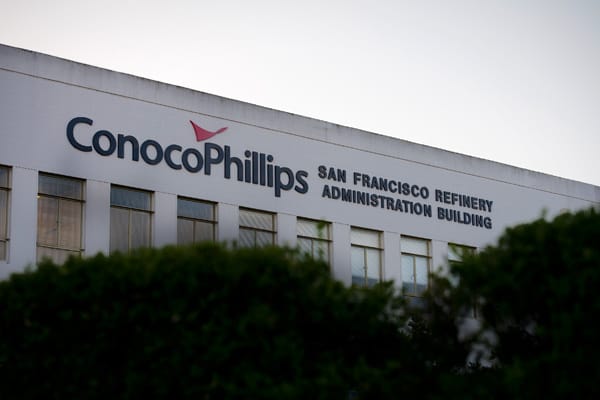ConocoPhillips is selling extra gas to bitcoin miners in North Dakota

For investors who like to play it safe, Cramer recommends ConocoPhillips. He considers Conoco one of the most shareholder friendly companies, as it boasts a 3.5 percent dividend yield. It has also executed meaningful share buybacks, which helped reduce share count. The Houston-based company is also unlocking value for shareholders by breaking itself up, Cramer continued. Conoco is spinning off its downstream refining and marketing business while keeping its faster growing exploration and product
Photo: David Paul Morris | Bloomberg | Getty Images
Oil and gas major ConocoPhillips is in the bitcoin mining fuel business.
The company said in a statement to CNBC on Tuesday that it has one bitcoin pilot project currently operating in the Bakken, a region in North Dakota known as an important source of new oil production in the U.S.
A representative for ConocoPhillips said the company is not operating the crypto mine itself. Instead,it sells gas that would otherwise have been burned off to a bitcoin processor that is owned and managed by a third party.
Shares of ConocoPhillips are trading around 2.5% lower as of Tuesday afternoon.
The push into bitcoin mining dovetails with an initiative by the oil and gas to reduce routine flaring, or burning off extra gas, to zero by 2030. Co-locating a bitcoin mine to an oil and gas field is a huge help toward that goal.
For years, oil and gas companies have struggled with the problem of what to do when they accidentally hit a natural gas formation while drilling for oil. Whereas oil can easily be trucked out to a remote destination, gas delivery requires a pipeline. If a drilling site is right next to a pipeline, they chuck the gas in and take whatever cash the buyer on the other end is willing to pay that day. But if it’s 20 miles from a pipeline, drillers often burn it off, or flare it. That is why you will typically see flames rising from oil fields.
Beyond the environmental implications of flare gas, drillers are also, in effect, burning cash.
ConocoPhillips did not disclose to CNBC which bitcoin miner it sells to, but what typically happens is that a company like Denver-based Crusoe Energy Systems will place a shipping container full of thousands of bitcoin miners on an oil well, then diverts the natural gas into generators, which convert the gas into electricity that is then used to power the miners.
The process reduces CO2-equivalent emissions by about 63% compared to continued flaring, according to research from Crusoe.